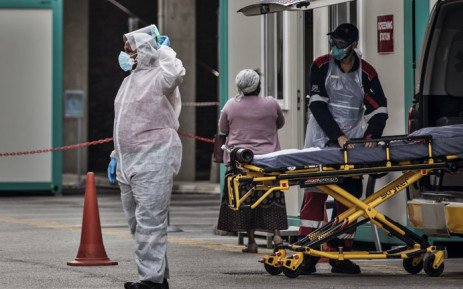
By Fr Oskar Wermter SJ A WOMAN had gone to a neighbouring country as part of her professional duties. When she came back, Zimbabwe was under lockdown. She was ordered to go into isolation for three weeks. Her family put her into a separate room without access to the rest of the house or the garden, without any human contact. She was only given her meals, three times a day.
Nobody asked if she needed anything. Only one person sent a message and asked if she wanted any help. Did she want something to read? Did she need clothes? Or have clothes washed and ironed?
The family members were satisfied that they had followed instructions and could not do anything else. They had obeyed the law, observed the rules, had made sure that she would be “locked away” in solitary confinement for three weeks.
Nobody asked how a person can bear life under such conditions. Nobody was concerned about her human condition, how she could cope with her “incarceration”, cut off from family and friends. What would be the psychological impact of the lonely existence which she had never experienced before?
She was just a “biological unit” hosting possibly some dangerous germ. She was no longer a person with feelings, anxiety, fears. She was just a “thing” that had to be “made safe”, like an explosive object that had to be defused, no longer a human being.
The family, acting as prison warders, had acted “correctly”, no doubt. They could not be blamed. Government had made a decision, on medical advice. Psychology was not its department. There was no place for human considerations. These had to give way to concern for sheer physical survival. In the end, a doctor showed some concern and was able to release her after two weeks, one week short of her “sentence”. Maybe (but who knows really?) this ruthless policy contributed to saving of lives. Let us hope so.
But that is not the end of the story. This person was now permitted to rejoin her family and continue her normal life and work. She was traumatised. For those days she had been brooding over what was being done to her, she felt resentful about her undeserved “imprisonment” . For all this time, she felt a growing hatred for the people who had deprived her, without much explanation, of her freedom and human contact. How would she be able to resume life in the family, alienated and wounded? Could she regain her normal good relations with family members?
We do not know.
- Chamisa under fire over US$120K donation
- Mavhunga puts DeMbare into Chibuku quarterfinals
- Pension funds bet on Cabora Bassa oilfields
- Councils defy govt fire tender directive
Keep Reading
But we do know that ordering fellow human beings into total isolation, observing rules laid down by the authorities is not enough. We must act, whatever the medical requirements, in a humane way, with empathy, putting ourselves into the shoes of the person(s) concerned. Persons are not “things” you can “lock away” regardless of their feelings, their capacity (or absence of it) to cope with a situation like that. The pandemic tests our humanity. We can exercise compassion, charity, respect for brothers and sisters, or turn into unfeeling monsters capable of sheer cruelty.
- Fr Oskar Wermter SJ, Harare/Zimbabwe, is a pastoral priest and a writer. He used to contribute to church magazines, including “Worldwide”. He lives in a retirement home for Jesuits. Recently he has been engaged in a little pastoral work and some writing again.











